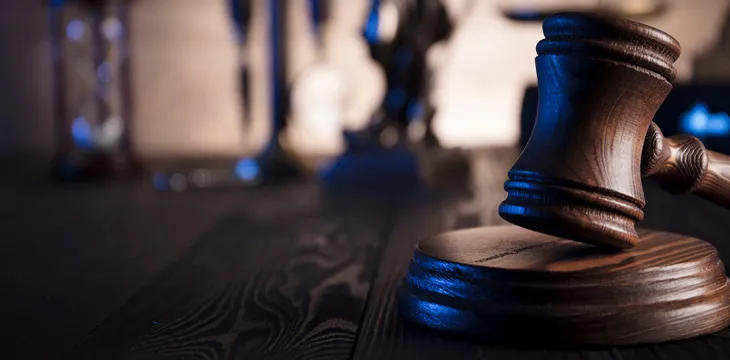|
Getting your Trinity Audio player ready...
|
The U.K. Court of Appeal heard a second day of arguments over whether the English High Court was correct in determining that there is “no serious issue to be tried” on the question of whether Bitcoin developers owed a legal duty to Tulip Trading Limited (TTL) that would compel them to assist in the return of its stolen digital assets valued at more than £3 billion.
On Wednesday, the court heard counsel for TTL argue that High Court Justice Falk erred in throwing the case out without the benefit of a full trial, with John Wardell KC saying that the “issues raised are of fundamental importance to TTL itself, as it owns substantial assets that it can no longer access, as well as to the financial world generally.”
On Thursday, the court heard from James Ramsden KC and Alex Charlton KC acting for the defendants who had successfully gotten the case thrown out. They urged the Court of Appeal to uphold Justice Falk’s order.
Central to the respondent developers’ argument is the impracticality of assigning fiduciary and tortious responsibility to developers in this way.
For one, Ramsden argued that a fiduciary duty requires some element of entrustment on the part of the beneficiary. Ramsden said that in the case before the court, holders of digital assets do not ‘entrust’ anything to the developers in large part because the developers belong to a fluctuating class of people: “It’s impossible to entrust anything to someone you don’t know.”
Lord Justice Popplewell questioned this, pointing out that a similar point could be made of a solicitors’ duty toward their clients, which is perhaps the easiest example of a true fiduciary duty: that firm might be a fluctuating class with client work being performed by an indeterminate range of lawyers, assistants, and other consultants.
Wardell, acting for TTL, also argued in response that whether the assets could said to have been entrusted to the developers was a matter of fact and not legal analysis. Such factual determinations are generally left to trial and are off the table for summary applications such as the jurisdictional challenge made by the defendants.
Ramsden also argued that contrary to TTL’s contention that it (and anyone else that falls victim to a similar fraud) is at the mercy of the developers, TTL has the greater power over the assets in question: TTL knows which assets it possesses on the blockchain and which wallet addresses are its own, what its private key is and where it might be stored and what precautions had been taken to secure the key.
He challenged the contention that the developers are responsible because they are the primary authors of the relevant software that they are now compelled to create a patch to the network at TTL’s whim. Later, Lord Justice Briss questioned this implication that the developers are only connected to the network via their authorship of the code, pointing out that if that was the case then Dr. Craig Wright could make the required changes to the network himself. He obviously can’t do that, because the developers are not mere authors but active maintainers of the software—if any update is applied or (proposed to be applied) to the network then it is purely by the grace of those developers.
Another difficulty cited by Ramsden and Charlton is the possibility of competing claims to assets. Ramsden argued that the nature of the Bitcoin network is such that all of those potential claimants can be spread across the globe and in multiple jurisdictions.
Later, in response, Wardell KC acting for TTL argued that the risk of competing claims is “wildly overstated” and that there was no reason to think that there would be a greater proportion of rival claims over digital assets compared to any other kind of property.
“In any event, the fiduciary duty is to the true owner,” he argued. “If you cannot say who the true owner is, let the court decide. It is no different from two or more people claiming to be a beneficiary under a will. The personal representatives still owe fiduciary duties to the real claimant.”
The question now rests with the Court of Appeal and a ruling is not expected until early next year. Should they grant TTL’s appeal, the case will be sent back to the High Court and put on a path to trial, where the question of whether developers owe fiduciary and/or tortious duties to users will be considered in full. All that the Court of Appeal needs to find in order for TTL to succeed is that there is a serious issue to be tried on that point. Given this appears to be the best chance that the U.K.’s senior courts are likely to get to weigh in on the subject, a rejection of TTL’s case would in effect mean that the question of developer liability would rest with Parliament—or potentially with the Supreme Court.
Watch the morning session here: https://youtu.be/ATBBwd8cgIo
Watch the afternoon session here: https://youtu.be/95PB-dzlP0c
Learn more about the Digital Asset Recovery tools here.
Watch: Digital Asset Recovery on Bitcoin Explained

 07-14-2025
07-14-2025 





